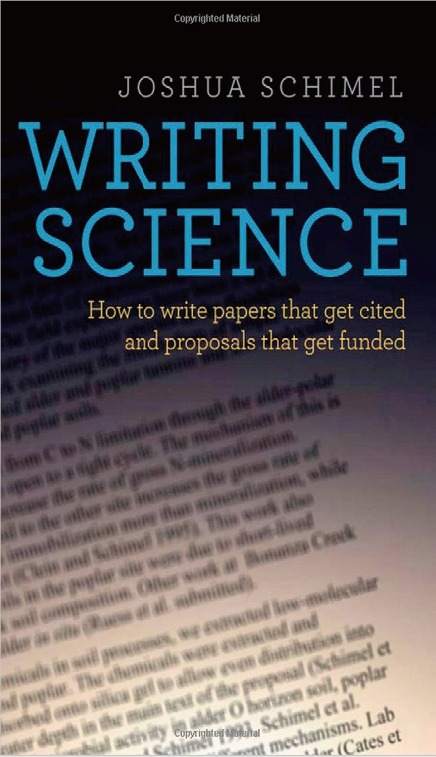Book Review: Writing Science: How to Write Papers That Get Cited and Proposals That Get Funded
Article information

This is the premise which the author, an environmental scientist at the University of California, Santa Barbara, carries throughout the book. It is an alarming notion for some, acceptable to others, but nonetheless fresh and thought provoking to most. As scientists, we often delegate the actual writing process to a secondary role in the process of scientific investigation and reporting. But as this book states, seldom does clear writing emerge from clear thinking; rather clear thinking emerges from clear writing.
To be frank, books that emphasise the writing process to scientists are a dime a dozen, ranging from those primarily written by actual writers who tend to criticise the cumbersome and cluttered language of the scientist, to those written by scientists, who seem to forget they are conveying the importance of writing and tend to fall back to delivering a technical manual of sorts, replete with ideas emphasising the choice between figure or graph, rather than the process of writing itself. Perhaps, this book shines through because it is a book written by a scientist, who emphasises the process of writing over accurate delivery of the minutae of datum.
The author empathises with, rather than criticise, the tendency for scientists to focus on conveying data than conveying a cohesive story. In a memorable address, the book states that while we cannot hope to become wordsmiths, but asks how much of our research suffers from poor writing. It is amusing how for people who hope to publish, we are so severe on our audience. It is the author's job to make the reader's job easy.
This book is not a technical manual, though it will give out pointers on how to writer better. This is not a prolonged tirade of a high minded literary scholar nitpicking grammatical errors. This book is a scientist's guide to improve delivery, refine investigative thought and offers retrospect to what we call our profession.